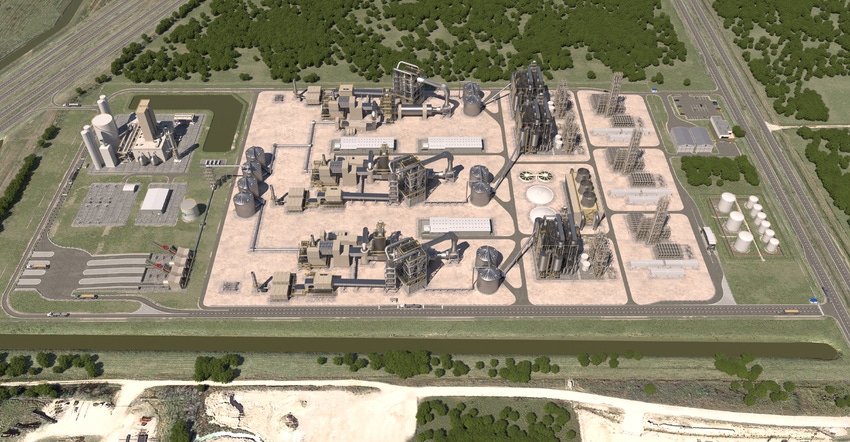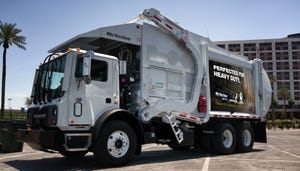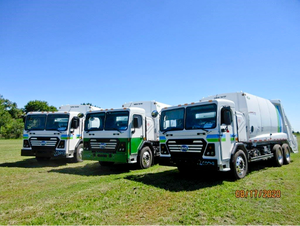Modular Plant Solutions Hopes to Open up Methanol Market With New Plant Model
Today’s typical methanol plant is a mammoth, global-scale machine, cranking out upward of 3,000 metric tons per day of this in-demand commodity. But a few entrepreneurs are starting to build much smaller systems, seeing them as a promising model to capitalize on this basic building block for multiple products, from plastics to liquid fuels to paints and plywood.

Modular Plant Solutions, a global engineering firm that specializes in process modularization and project implementation, designs methanol plants to produce a nominal 300 metric tons per day – that’s 99,900 gallons – of grade AA methanol, which is the industry standard.
The Texas-based company’s MeOH-To-Go (or Methanol-To-Go) plant typically starts with natural gas or biogas; reforms it to syngas; then converts the syngas to methanol. Target customers are those who sell to just about any methanol market, whether chemical producers, marine fuel manufacturers, or other.
Co-founders Russell Hillenburg and David Townsend sold their first system a few months ago to a developer of renewable gasoline and renewable hydrogen facilities that will turn the methanol into carbon-negative drop-in gasoline. They have a few other prospects in the pipeline.
“While historically methanol is made at world scale, we wanted to compete by offering a smaller-scale alternative but knew we would have to think differently to do it,” Hillenburg says.
Coming up with a standard design was key. Something that was a consistent product, engineered once, and could be duplicated. Yet at the same time versatility was important. So, they designed a modular system – a collection of building blocks that can be adapted for different needs— something that could work from just about any location in the world; be transferred easily and cheaply to those locations; and process multiple feedstocks, including natural gas and varied syngasses.
The small modular plants will be made at fabrication facilities and can be transported via ship, rail, or truck, and re-assembled on-site, reducing construction risks of cost overrun, weather delays, and worker injury.
Hillenburg envisions they will serve well in remote places to work with stranded natural gas that can be turned to liquid and moved almost anywhere. End users can also produce methanol output from associated gas (that comes out with oil) or pipeline gas.
MeOH-To-Go can run as a standalone facility or as part of a bigger plant. It was engineered to accommodate multiple front-end feedstock options and processes, as well as back-end, add-on technologies. So, customers can change inputs and outputs, depending on their needs or what’s available to them.
The first system was sold to Arbor Renewable Gas who is converting woody biomass at its Spindletop Plant in Beaumont, TX to syngas through gasification. The syngas is then processed in MeOH-to-Go to make methanol. Through a final gasoline synthesis step, it’s made into carbon-negative drop-in fuel.
Arbor Renewable declined an interview request but in an earlier statement the company’s president and CEO Timothy Vail alluded to that this project was the first of what would be more to come, commenting, “In the future, MPS’ plants, expertise, and modularization design approach will allow Arbor to expand our operations and bring more renewable gasoline plants online on a cost- and schedule-effective basis.”
Being able to provide the option of a stand-alone facility required designing MeOH-To-Go plants to be self-sufficient with regard to utilities.
“We needed a package to include all the plant needed to produce methanol– namely feedstock, power, water, and a water purification system –especially if it were to operate at remote locations that may not have resources of a typical plant,” Hillenburg says.
The system can be operated and closely monitored remotely from a console if there is an internet connection between the operation center and the plant. This set up is key to cutting labor costs, while facilitating procurement of a highly skilled workforce—operators can be brought on board from anywhere in the world.
The process technology that powers MeOH-To-Go is licensed from Denmark-based Haldor Topsoe, methanol technology experts. The two companies worked together to try and maximize operations while minimizing capital expense.
“We partnered with MPS to create MeOH-To-Go because of their chemical, modularization, and operation expertise.
We designed this small-scale methanol plant with the option to go green from the outset, and it is perfectly in line with the direction of Topsoe and our desire to reduce carbon emissions and work towards sustainable chemicals and fuels,” says Henrik Rasmussen, managing director for Haldor Topsoe.
Hillenburg, Townsend, and their team are working on two more plant options: an MeOH-To-Go add-on to produce dimethyl ether (DME), and a modular plant to produce 88 Octane gasoline (an ethanol-gasoline blend).
About the Author(s)
You May Also Like




